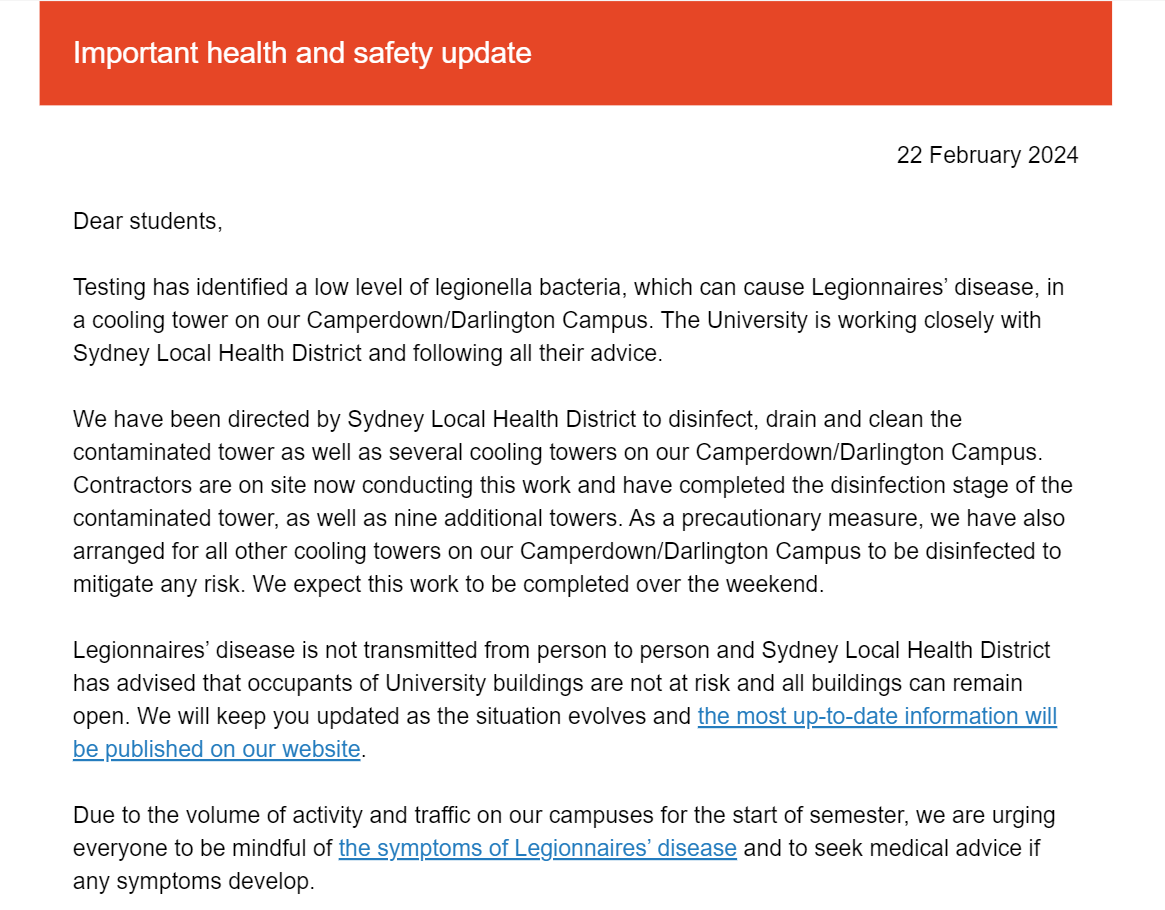Low levels of Legionella bacteria have been detected in a Fisher Library cooling tower on the Camperdown/Darlington campus of the University of Sydney. NSW Health is calling for symptom monitoring after three people who contacted Legionnaires’ disease had recently spent time around the USyd campus since late January.
In an exclusive statement for Honi Soit, a USyd spokesperson said:
‘‘Low level contamination was identified in the external part of a tower at Fisher Library. We’re working with Sydney Local Health District and have acted swiftly to disinfect and clean the tower and those in the surrounding area as advised by SLHD.”
The University is currently cleaning the infected tower and all other cooling towers on campus. The disinfecting of all towers is expected to be complete by the end of this weekend.
The University has told any students who exhibit the symptoms of Legionnaires’ disease, such as fever, chills, coughing, shortness of breath, or a severe chest infection to seek medical advice immediately, especially members of the University community who are immunocompromised.
The email assures students that health authorities have confirmed that all campus buildings are safe to occupy and classes will not be impacted.
Honi asked the University if there would be any changes to how cooling towers were cleaned or inspected. In the original email, the spokesperson maintained that the University “regularly tests our buildings and cooling systems in line with NSW Health’s guidelines and standards.”
Legionnaires disease cannot be spread person-to-person, but from exposure to contaminated water particles. Symptoms can develop up to ten days after exposure.
This detection follows a Legionnaires disease alert in Sydney CBD on January 3, prompted by seven people developing the disease after spending time in that area.
NSW Health issued a statement shortly after the announcement echoing the University’s call for vigilance of symptoms for those who had been around the Camperdown/Darlington campus or Victoria Park in the past 10 days. NSW Health reported that three people who had developed the disease had “spent time in the area since late January”.
NSW Health confirmed that “the positive cooling tower has been decontaminated,” while reminding all building owners that they “must ensure that their cooling towers are operated and maintained in compliance with the NSW Public Health Regulation 2022.”





